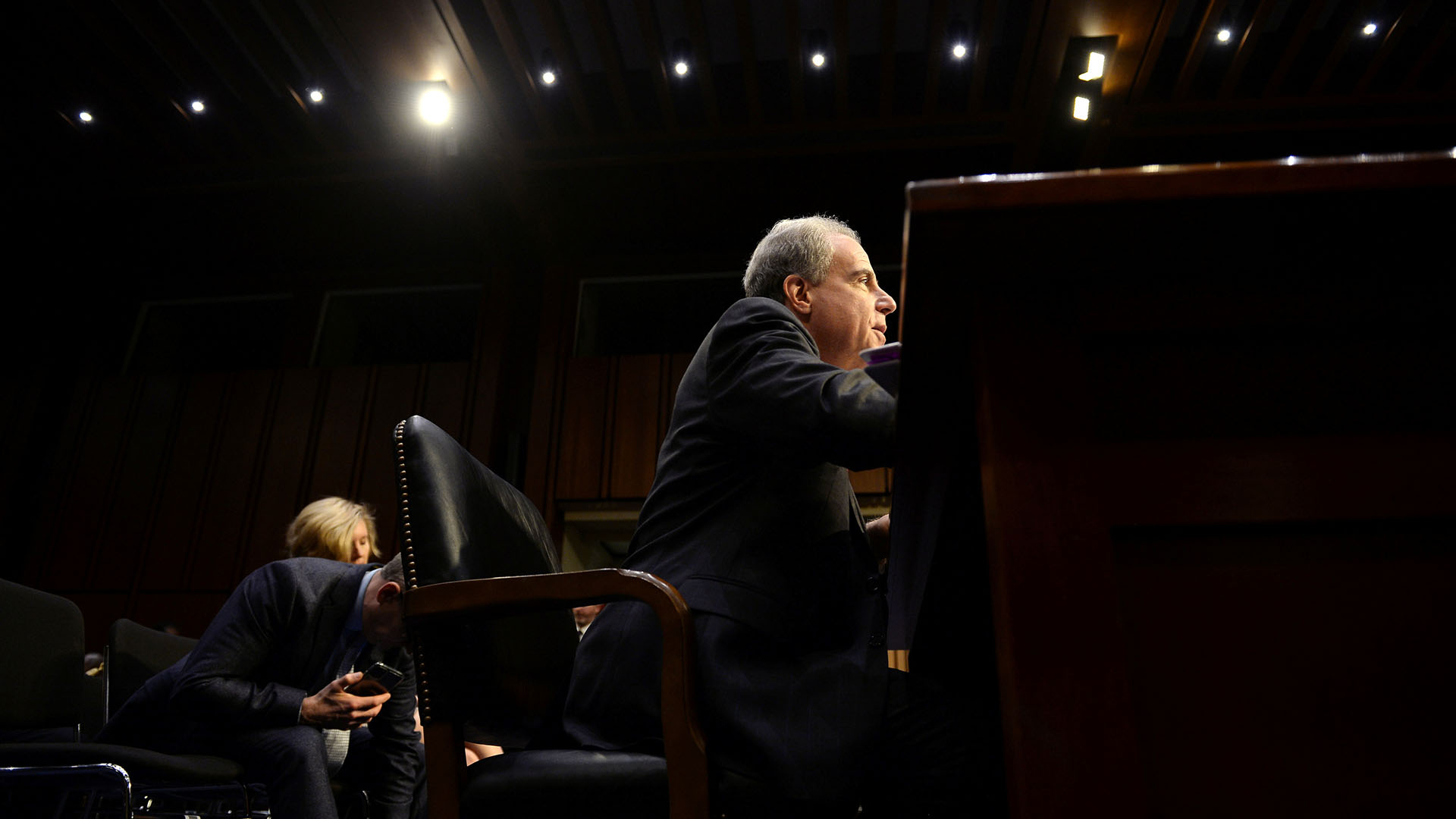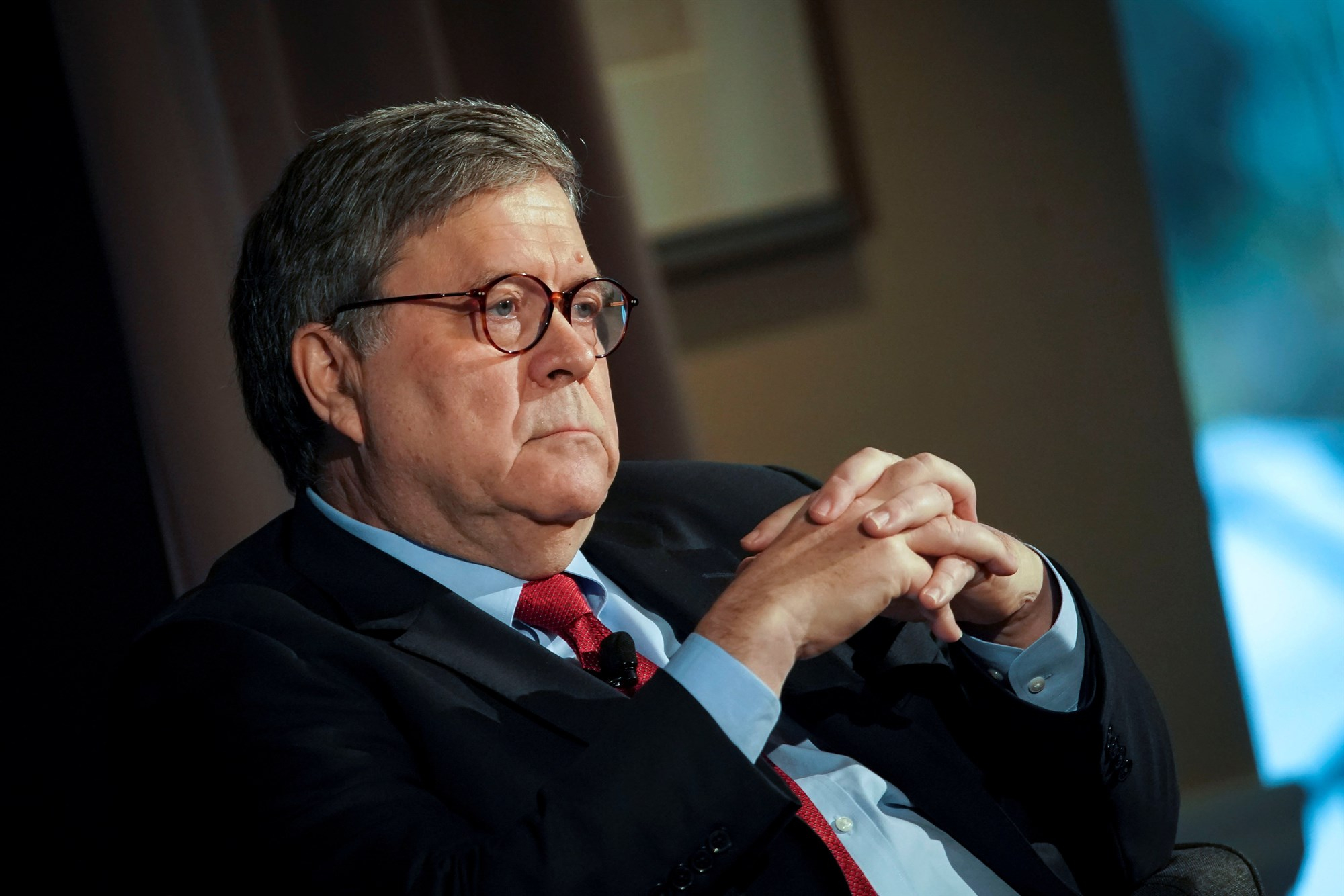
U.S. Justice Department Inspector General Michael Horowitz testifies before a Senate Judiciary hearing on his report on alleged abuses of the Foreign Intelligence Surveillance Act in the Hart Senate office building in Washington, U.S., December 11, 2019. /Reuters Photo
U.S. Justice Department Inspector General Michael Horowitz testifies before a Senate Judiciary hearing on his report on alleged abuses of the Foreign Intelligence Surveillance Act in the Hart Senate office building in Washington, U.S., December 11, 2019. /Reuters Photo
Justice Department Inspector General Michael Horowitz testified before the Senate Judiciary Committee on the results of the investigation involving Donald Trump's 2016 campaign and possible ties with Russia on Wednesday.
Horowitz told the senators the FBI had a legitimate basis to launch the investigation and that no political motivation was behind the probe, but there were flaws in how it was conducted.
He criticized how the FBI had prepared its applications for legal approval to eavesdrop on a former Trump campaign aide, the AP reported. He said there was a clear need for policy changes at the FBI.
"It doesn't vindicate anybody at the FBI who touched (the applications), including leadership," Horowitz said.
Both Republican and Democrat members of the Senate pressed Horowitz over the report's conclusions, selecting facts in the report to bolster their opposing views over the probe's legitimacy. Horowitz's findings were also criticized by Attorney General William Barr.

U.S. Attorney General William Barr attends the Wall Street Journal CEO Council, in Washington, U.S., December 10, 2019. /Reuters Photo
U.S. Attorney General William Barr attends the Wall Street Journal CEO Council, in Washington, U.S., December 10, 2019. /Reuters Photo
'Bad faith'
Barr, in an interview with NBC News, said Horowitz used a standard that was "deferential" to the FBI when he investigated the claims of bias, and suggested that a final judgment cannot be made until federal prosecutor John Durham has completed his own separate investigation into the origins of the Trump-Russia investigation.
"I think our nation was turned on its head for three years based on a completely bogus narrative that was largely fanned and hyped by a completely irresponsible press," Barr said.
"I think that leaves open the possibility that there was bad faith."
Barr also said he was disturbed by the FBI' s reliance on a dossier penned by former British spy Christopher Steele in order to obtain a wiretap to monitor the campaign adviser Carter Page, saying the dossier was "complete rubbish" and a "complete sham."
Barr has come under withering criticism from Democrats, who have accused him of acting more like Trump's personal attorney and not like the Attorney General of the United States.
Earlier this year, Barr tapped Durham, the U.S. attorney for the District of Connecticut, to look into the origins of the investigation into Trump's campaign.
Durham's probe is broader than Horowitz's mandate because it involves talking to multiple U.S. intelligence agencies, such as the CIA, and foreign powers.
Durham, unlike Horowitz, also has the power to subpoena non-government witnesses and talk to people who are not Justice Department employees.
Barr told NBC that while he is not sure when Durham will complete his investigation, he expects it to reach an important "watershed" in the late spring or early summer.
Source(s): AP
,Reuters